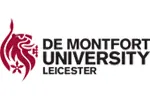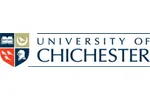Overview
Mathematics has shaped societies for thousands of years – from the Ancient Babylonians to today's increasingly sophisticated technology. Continue the tradition of unpicking complex mathematical problems and apply your methods to scenarios such as monitoring the spread of disease, predicting the route of a cloud of ash from a volcano or forecasting climate change.
Study core mathematical topics including calculus, algebra, matrices, modelling and differential equations. Then shape your degree to your ambitions and interests in following years, by choosing optional modules in pure and applied maths such as abstract algebra, financial modelling, operational research and cosmology.
When you graduate, you’ll be in high demand, especially in the expanding technology, data and machine learning industries.
Course highlights
- Study in a welcoming and supportive environment, with student satisfaction in the top 10 nationally and a daily drop-in Maths Café
- Delve into topics including dynamical systems, partial differential equations, health research and group theory
- Learn from expert researchers such as Dr Jamie Foster, whose mathematical modelling is used to design electric car batteries
- Develop coding skills in programming languages including Python, and learn to use industry-standard mathematical, statistical and operational research software.
- Apply your skills on optional work placements in companies such as IBM and DSTL, or choose a module assisting maths teachers in local schools
- Investigate theories alongside the University's mathematicians — 95% of our research in Mathematics was rated as world-leading or internationally excellent and we're ranked top among modern UK universities for overall performance and research environment
Careers and opportunities
Mathematics is more than just number crunching.
A degree in mathematics shows that you have the ability to think analytically and conveys an intellectual maturity that many employers look for when they hire staff.
The demand for mathematics graduates is increasing too. The Council for the Mathematical Sciences predicts more than 7 million people in the UK will need mathematical science skills in 2030 – an increase of 900,000 compared to 2009, in particular in the fast-growing machine learning and space sectors.
Our graduates have worked for companies such as:
- NATS (National Air Traffic Services)
- TSB
- JP Morgan
- NHS
- BAE
- HSBC
- Portsmouth Grammar School
Our graduates now work in roles including:
- research analyst
- service reliability engineer
- accountant
- mathematics teacher
- credit risk analyst
- data scientist
- graduate scientific research engineer
Ongoing career support – up to 5 years after you graduate
Get experience while you study, with support to find part-time jobs, volunteering opportunities, and work experience.
Towards the end of your degree and for up to five years after graduation, you’ll receive one-to-one support from our Graduate Recruitment Consultancy to help you find your perfect role.

















